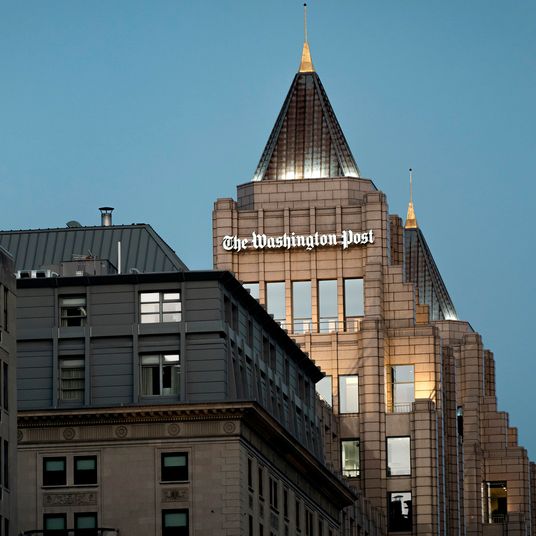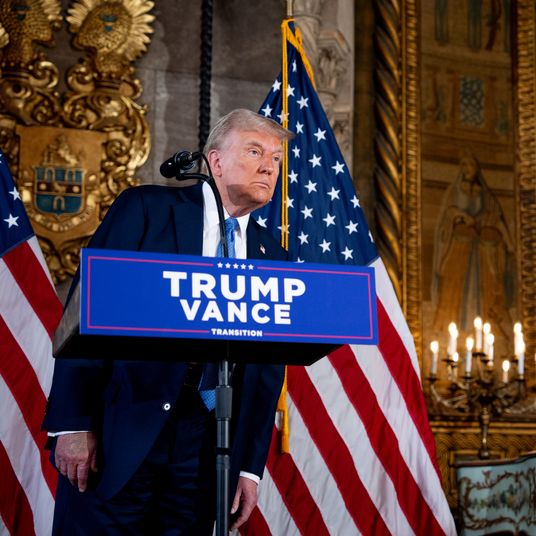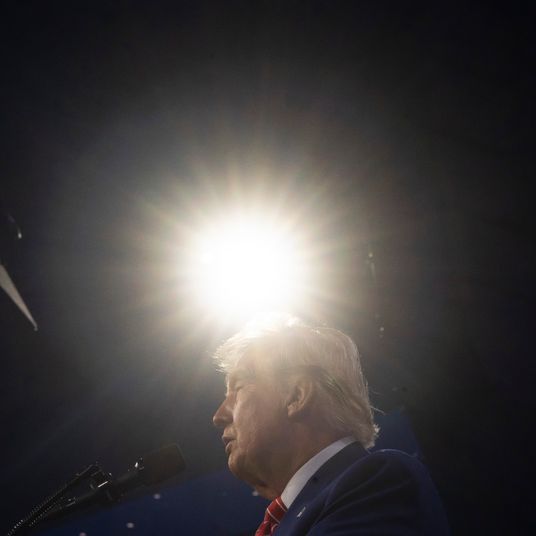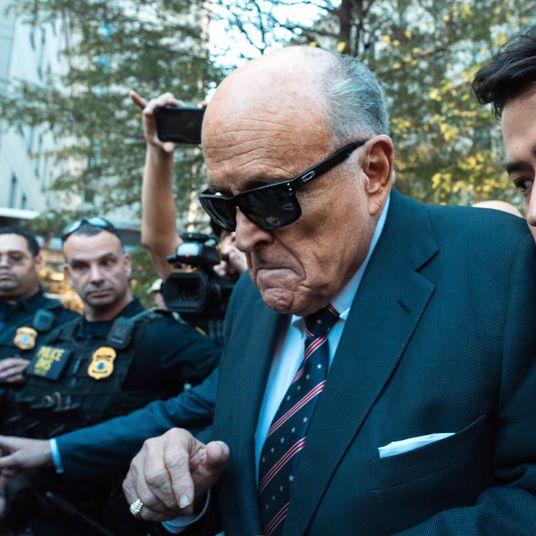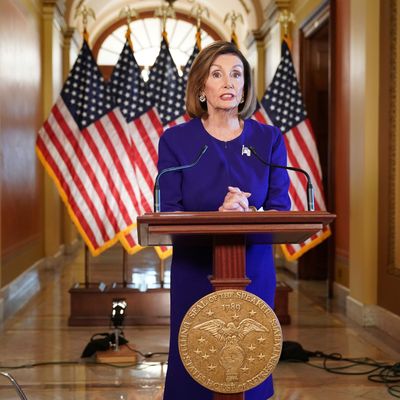
President Trump says markets would “crash” if he is impeached. That is probably an overstatement, but intraday market moves on Tuesday did make clear that investors consider impeachment to be a negative event. Around noon on Tuesday, as news reports came out that Nancy Pelosi was expected to announce her support for a formal impeachment inquiry, the Dow Jones Industrial Average lost hundreds of points within minutes. Then, just after 2 p.m., when Trump announced he would release a transcript of his call with Ukrainian President Volodymyr Zelensky — a sign the White House was seeking to defuse impeachment pressure with a document it thought might be exculpatory — the Dow quickly regained 200 points.
To understand why, we should look through the history of the stock market’s relationship to the president. Or rather, its multiple relationships to the president.
Throughout the 2016 campaign, a Trump win was considered bearish: Hillary Clinton was seen as the candidate of continuity and stability, while Trump was a chaos agent promising to pull the U.S. out of trade agreements and disrupt globalization. Consequently, stocks tended to go up whenever news events appeared to increase Clinton’s odds of winning. This theme continued through Election Night, with stock-market futures tanking as it became clear Trump would win.
“Dow Futures Plunge 750 Points as Trump Takes Key Battleground States” was a Marketwatch headline from 11:42 p.m. on November 8, 2016. But by the next day, stocks regained all those losses and then some. It was literally an overnight change: The market’s candidate was Clinton, until Clinton lost, and then the market fell in love with Trump.
“Market strategists said the upbeat mood in the markets is due in part to Trump’s victory speech, which raised hopes that he will focus on policies that can help the economy and not follow through on some of his extreme campaign positions,” CNN reported on November 9, 2016.
Trump was the same person that day as he was the day before. But after he won, investors started focusing on what they saw as his upsides, rather than his downsides. Instead of worrying about Bad Trump, they started thinking about what Good Trump could do for them — not just by improving the broad economy, but also by serving the interests of shareholders specifically.
Good Trump cuts corporate taxes, loosens regulations, and perhaps boosts the economy by improving investor and consumer confidence. Bad Trump imposes tariffs and foments uncertainty through erratic policymaking and government shutdowns. Because both Trumps are in office, he is not always a plus for markets: Bad Trump’s trade-war escalations, for example, routinely cause stocks to fall. But from investors’ perspective, over the last three years, Good Trump has mostly outweighed Bad Trump.
That brings us to the two impeachment-related risks for stocks. One is that Good Trump and Bad Trump both get turfed out of office — No Trump — and the loss of Good Trump would outweigh the benefit of being rid of Bad Trump. I don’t mean markets are concerned the Trumps will be removed through the impeachment process — that’s very unlikely, and even if it did happen, Mike Pence would probably pursue even more stock-friendly policies with fewer trade disruptions — but that impeachment would be either a symptom or a cause of Republican political weakness, making it more likely the 2020 election would be won by someone who would, for example, raise the corporate income tax.
But I don’t think this is the key operative concern. Markets have gotten most of what they wanted out of Good Trump (particularly the tax cut) and I think they are mostly worried that impeachment will bring out more of Bad Trump. Bad Trump, after all, has had a tendency to lash out when he feels disrespected or powerless. He could escalate the trade war or shut down the government or launch nuclear missiles or do any number of other things that are bad for stocks.
But in a weird way, Good Trump has been working overtime this week trying to reassure the markets. He’s made noise — probably nothing more than noise, but enough to move the market up a little — that he thinks a China trade deal might come earlier than expected. At Wednesday’s U.N. press conference, a reporter from Fox Business asked Trump whether he might withdraw from NAFTA if impeachment drama prevents ratification of his proposed USMCA deal. Good Trump was there to pass on making that threat.
And while his administration declares on the record that Democrats have “destroyed any chances of legislative progress” by moving forward with impeachment, a “source with knowledge of his thinking” told Roll Call he nonetheless intends to sign the stopgap spending bill to keep the government open past September 30. That’s the sort of bill the markets might have worried Bad Trump would veto.
Trump is surely angry, but he also realizes a strong economy and a buoyant stock market are two of the key political assets he has as he enters a very difficult period. If he is intent on holding onto them, the markets will see more of Good Trump than they might have expected over the next few months — and that should dull impeachment’s effect on the stock market.
More on the Trump-Ukraine Scandal
- Trump’s Impeachment Trial and the Verdict of History
- Trump Fires Impeachment Witnesses Alexander Vindman and Gordon Sondland
- Trump Impeachment Hearing Schedule: What’s Next?





















